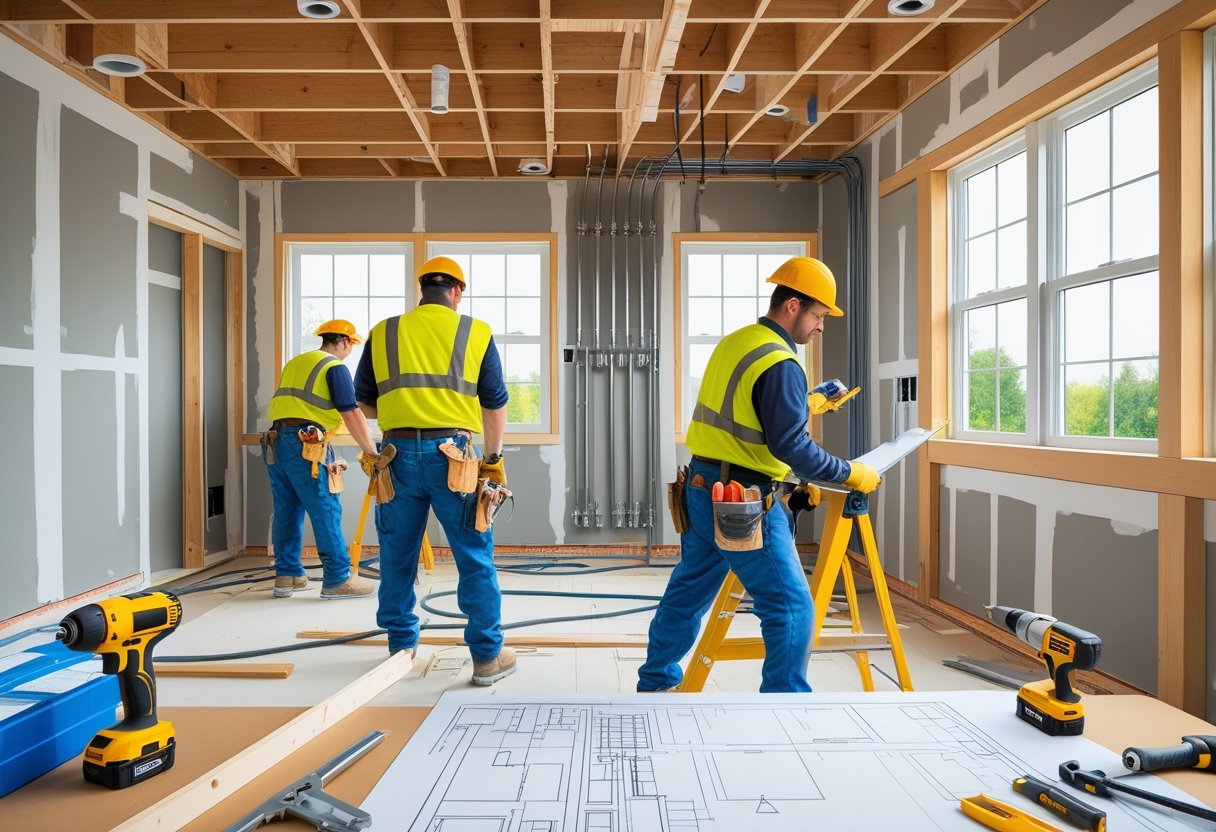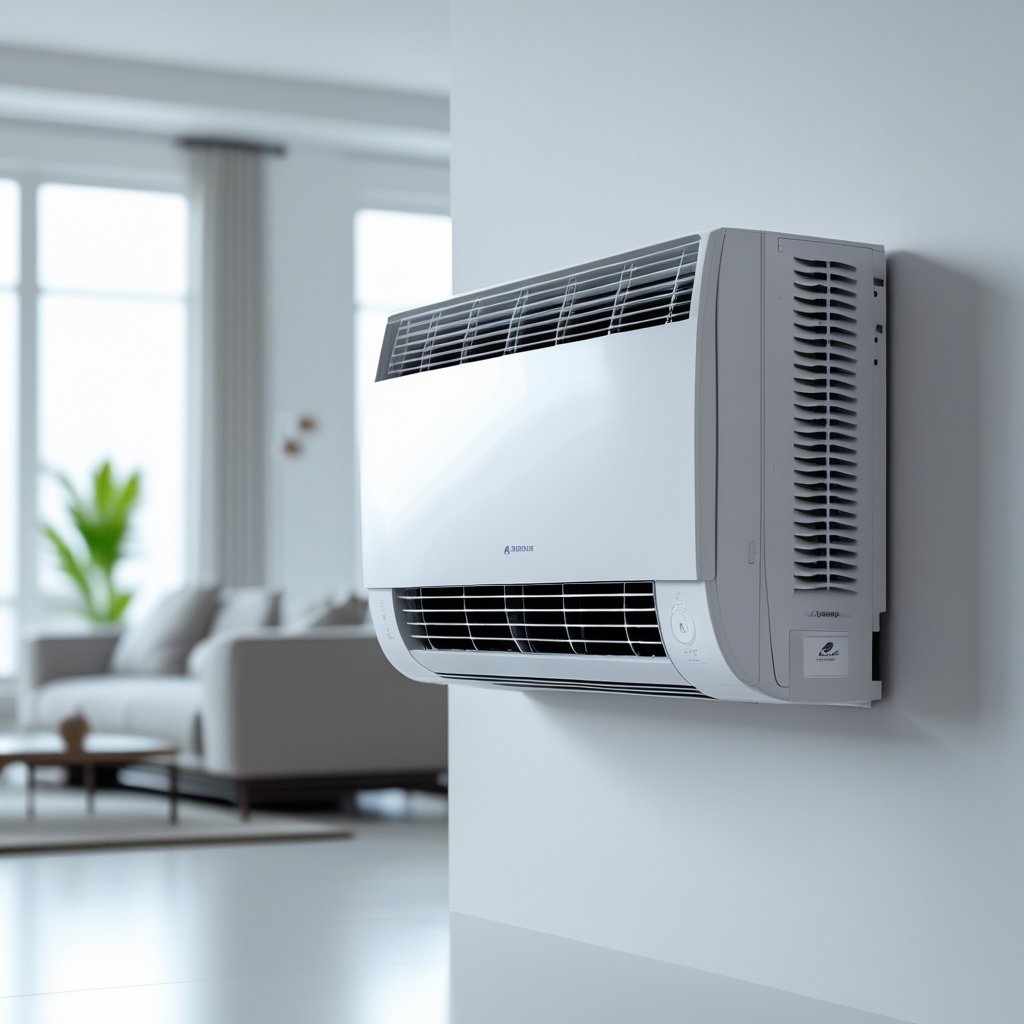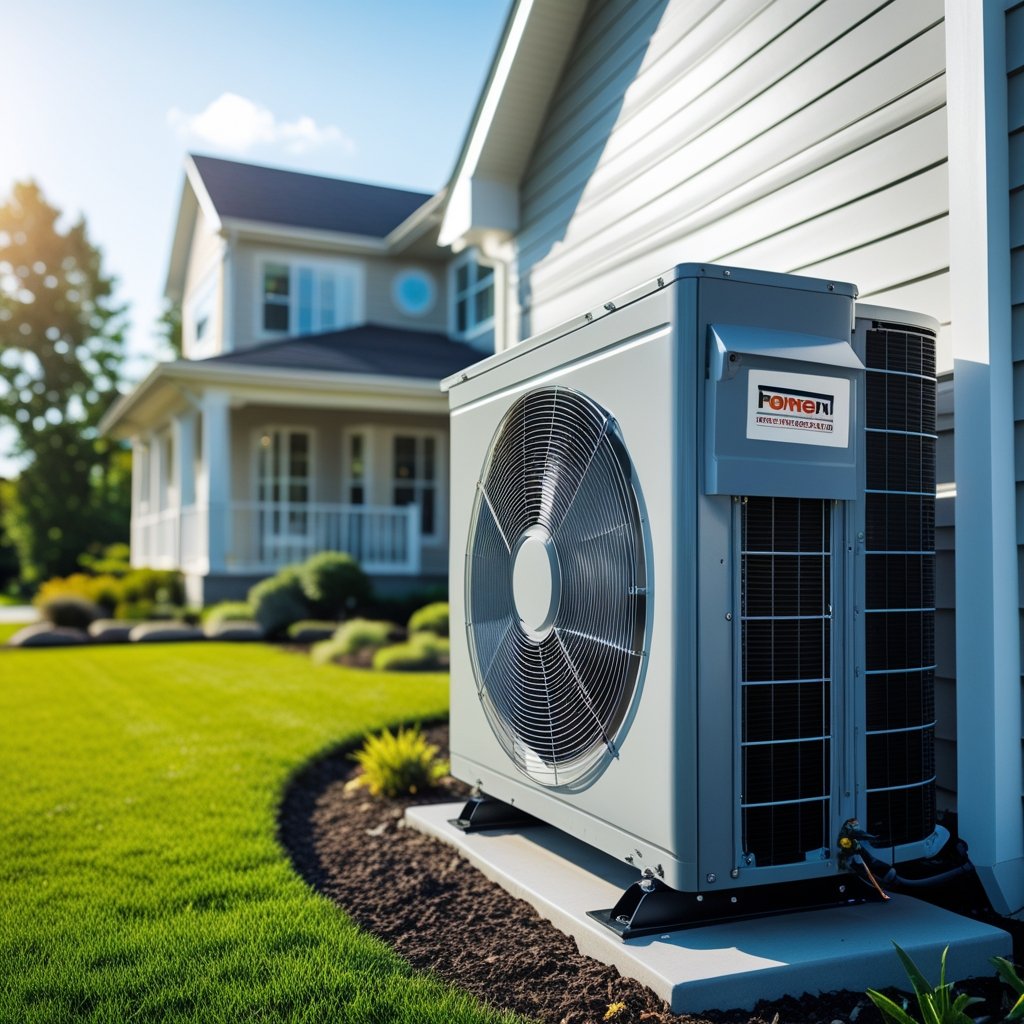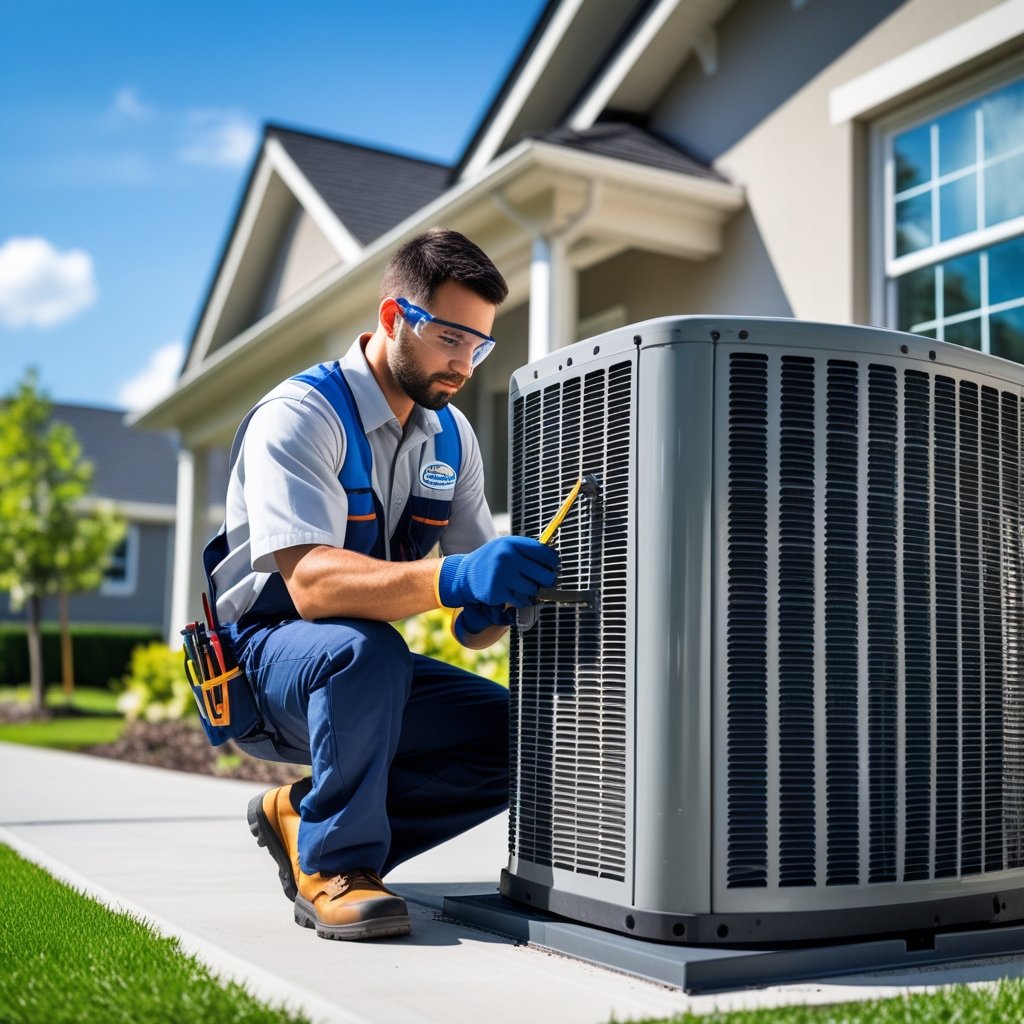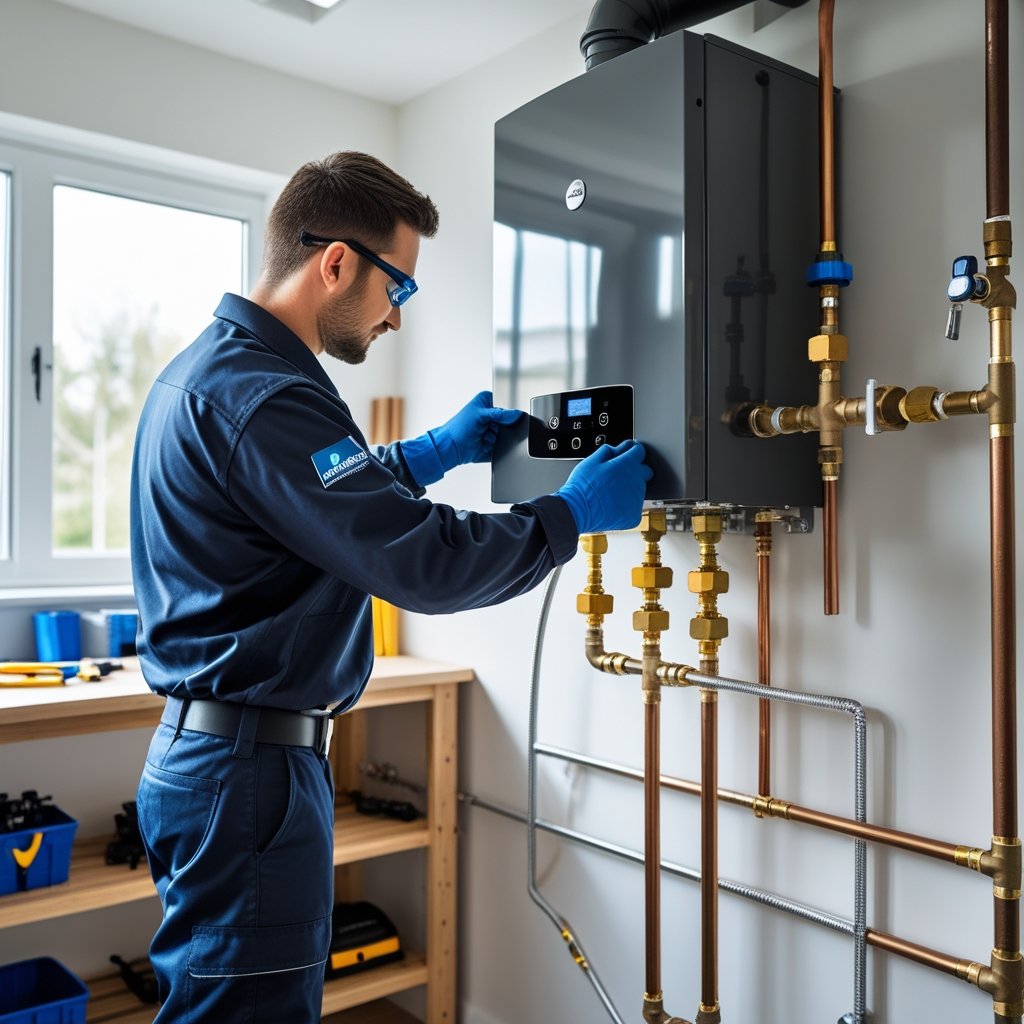When you decide to remodel your home or upgrade your utilities, you’re not just improving how your house looks or works—you’re investing in comfort, safety, and long-term savings. Upgrading your plumbing, HVAC, or electrical systems can help you avoid costly repairs and cut energy bills. Whether you’re updating for efficiency or modern convenience, smart choices make a big difference.
Leo Kob Co., serving South Central Pennsylvania since 1904, knows what homeowners really need. From replacing old water heaters to installing mini-split systems, careful maintenance and thoughtful upgrades keep your home running smoothly. You’ll also get honest pricing and work done with care, so your investment actually lasts.
Taking on home remodeling and utility upgrades doesn’t have to feel overwhelming. With the right approach, you can boost your home’s value, comfort, and safety—without nasty surprises lurking around the corner. Here’s a guide to help you focus on what really matters (and what you might want to watch for).
Understanding Home Remodeling
When you think about remodeling your home, you’ll want to know what types of projects are common, why remodeling can help your property, and how to plan your budget carefully. These points will help you make choices that fit your needs and wallet.
Types of Home Remodeling Projects
Home remodeling can be as simple as new paint or as big as adding a whole room. Typical projects include:
- Kitchen and bathroom renovations: Swap out cabinets, sinks, or appliances.
- Basement finishing: Make that empty basement actually livable.
- Utility upgrades: Improve plumbing, electrical, or HVAC for better efficiency.
- Room additions: Add another bedroom or living area.
Each project has its own perks. Utility upgrades help cut bills and avoid damage, while fixing up living spaces just makes life nicer. You can even bundle projects—like fixing plumbing while redoing a bathroom—to save time and money.
Benefits of Remodeling Your Home
Remodeling isn’t just about looks. It can boost safety, energy efficiency, and comfort. Upgrading old systems, like heating or water lines, helps you dodge leaks and expensive repairs.
A well-planned remodel can also bump up your home’s resale value. Fresh kitchens and bathrooms attract buyers. Plus, you can tailor your space to your lifestyle—maybe a home office, or just more storage.
If you pick reliable pros like Leo Kob Co., you’ll get solid service and fair prices. They won’t try to upsell you, either, which is honestly refreshing.
Planning and Budgeting for Renovations
Start with a clear plan. List what you want to change, what’s urgent, and what you really hope to get out of it.
Set a budget that covers materials, labor, and a little extra for the “just in case” moments. Ask contractors for clear quotes—no hidden fees, please. Leo Kob Co. is known for this, and it takes a lot of stress out of the process.
If your list gets long, break it into phases. Handle urgent stuff first, like leak repairs or electrical upgrades. Then move to cosmetic upgrades—paint, floors, that sort of thing. That way, you don’t blow your budget or get overwhelmed.
Here’s a simple way to organize your plan:
TaskPriorityEstimated CostNotesPlumbing upgradesHigh$3,000Prevent water damageKitchen renovationMedium$10,000Increase home valueBasement finishingLow$8,000Add living space
Good planning saves money and headaches. It also helps you get the most out of what you put in.
Essential Utility Upgrades During Remodeling
Upgrading your home’s utilities during remodeling makes your place safer, more comfortable, and more energy-efficient. If you focus on electrical, plumbing, and HVAC systems now, you’ll probably avoid expensive repairs later—and your home will just feel more reliable.
Modernizing Electrical Systems
Old electrical setups often can’t handle today’s gadgets. Upgrading your panel gives your home the power it needs and keeps things safe. This usually means boosting amperage or adding new breakers to cut down on overload risks.
If you’re thinking of getting an electric vehicle, wiring for an EV charger now just makes sense. Leo Kob Co. has licensed electricians who can install these chargers safely.
Other smart upgrades: add outlets where you actually need them, swap out outdated fixtures, and update wiring to current codes. These steps help you avoid electrical headaches and support new tech.
Upgrading Plumbing Infrastructure
Plumbing leaks can cause big headaches if you ignore them during a remodel. Swapping out old pipes for durable materials keeps leaks and water damage at bay.
Think about upgrading fixtures—faucets, toilets, water heaters—for better efficiency and comfort. Fix those small leaks or replace worn pipes early, and you’ll dodge bigger repair bills later.
If you’ve got sewer or drain issues, a sewer lateral replacement might be in order. Leo Kob Co.’s licensed plumbers handle these repairs and emergency leaks, so your plumbing keeps working like it should.
Improving HVAC Systems
Heating and cooling are huge for comfort and energy savings. Upgrading to energy-efficient HVAC systems—mini-splits, heat pumps, modern boilers—can cut bills and keep you comfy.
Remodeling’s a good time to check ductwork for leaks or clogs. Better airflow makes your system work smarter, not harder.
Don’t skip regular maintenance. It keeps your HVAC running and can even get you rebates in South Central Pennsylvania. Whether you need a new system or just a tune-up, keeping it in shape protects your investment.
Integrating Energy-Efficient Solutions
Adding energy-efficient options to your home can lower costs and boost comfort. Smart home automation and solar panels are two practical moves. They help you manage energy use and reduce utility bills—without giving up convenience.
Smart Home Automation
Smart tech lets you control lights, heat, AC, and appliances from your phone or with your voice. You can set schedules so things run only when needed, saving energy and money. Smart thermostats, for instance, learn your routine and adjust temps for you.
Security and lighting get a boost, too. Motion sensors and timers keep lights off in empty rooms. Smart plugs let you track and control specific devices.
Always use licensed electricians for these installs. Leo Kob Co. offers pro electrical services in South Central Pennsylvania, so your smart home setup is safe and reliable—without any pushy sales tactics.
Solar Panel Installations
Solar panels turn sunlight into electricity, so you rely less on the grid. State rebates or tax incentives can make installation more affordable. Even a small system can shave down those monthly bills.
Before you install, have a pro check your roof and electrical panel. Done right, solar panels are safe and work at their best.
A little upkeep—cleaning panels, checking connections—keeps things running smoothly. Leo Kob Co. handles solar projects with an eye for long-term performance and code compliance, so your system should last for decades.
Enhancing Home Value Through Upgrades
Upgrades can make your home more valuable and appealing to buyers. Picking the right improvements boosts comfort, efficiency, and curb appeal. These changes can also affect your property’s value and how quickly it sells.
Impact on Property Valuation
Upgrading big systems—plumbing, HVAC, electrical—usually means your home will appraise higher. Licensed electricians can add value with safe EV charger installs or panel upgrades. These updates show you’ve taken care of the place and kept it up to date.
Energy-efficient upgrades like mini-splits or heat pumps help, too. Homes with modern tech often get higher appraisals thanks to lower utility bills. Even simple upgrades like water heater replacements or sewer repairs add durability, which appraisers like to see.
Increasing Resale Potential
Upgrades that boost function and style catch buyers’ eyes. Updated bathrooms, better lighting, and reliable electrical work all stand out. For example, an EV charging station can pull in electric vehicle owners around South Central Pennsylvania.
Go for improvements that add convenience and cut down on future repairs. Focus on long-term benefits—better plumbing, energy-saving HVAC, and so on. If you work with trusted contractors like Leo Kob Co., buyers see your home as a safe bet, which usually means faster sales and better offers.
Navigating Permits and Regulations
When you update your home’s utilities, you’ve got to follow the rules to keep things safe and legal. Knowing the basics up front saves time and money. It helps to understand what codes apply and how inspections work, so you don’t get tripped up later.
Building Codes for Utility Upgrades
Building codes set the minimum standards for utility work—plumbing, electrical, HVAC. They keep your home safe and systems working right.
For example, electrical panel upgrades have to meet the National Electrical Code, which covers wiring, breakers, grounding. Plumbing changes need to follow local codes to prevent leaks. HVAC upgrades have their own requirements for clearances and ventilation.
Talk to your contractor about which codes matter for your project. Get permits before work starts so inspections go smoothly. Leo Kob Co. knows the local codes and helps you get permits on time.
Inspections and Compliance
After upgrades, inspections make sure everything’s up to code and safe. Inspectors check wiring, pipes, and equipment before giving the thumbs up.
Most projects need at least one inspection. Some—like electrical or HVAC—might need a few. If you don’t pass, you have to fix the issues before moving forward.
Keep your permits and paperwork handy. Your contractor should help schedule inspections and answer questions. Passing inspections protects your investment and keeps your home safe.
Choosing the Right Professionals
Finding skilled, trustworthy pros is key for remodeling or utility upgrades. The right team saves you time, money, and headaches by doing things right. Good communication matters, too—you want people who listen and respect your needs.
Selecting a Qualified Contractor
Pick a contractor with real experience in remodeling and utility upgrades. Make sure they understand both the structure and the systems in your home. Check reviews, ask for references, and look at their past work.
A solid contractor gives you clear pricing and timelines. They’ll walk you through the steps and keep you in the loop. Don’t settle for someone who rushes or tries to push extras you don’t need.
Make sure they have insurance—it protects you if something goes wrong. A qualified contractor helps your investment last.
Working With Licensed Electricians and Plumbers
Electrical and plumbing work really needs licensed pros. Licensed electricians, like those at Leo Kob Co., know how to install and upgrade safely and to code. This matters a lot for panel upgrades or EV charger wiring.
Licensed plumbers handle everything from sewer lateral replacements to water heater installs. They can spot problems early and help you avoid water disasters. Unlicensed workers? Not worth the risk.
Ask for proof of license and insurance. Good tradespeople explain your options and respect your space. That way, you get reliable service and no surprises.
Budgeting and Financing Utility Upgrades
Planning utility upgrades means knowing what the work will cost and figuring out how you’ll pay for it. Estimate expenses carefully and check out financing choices that fit your budget. That way, you can keep your project on track and avoid any unpleasant surprises.
Estimating Project Costs
Start by listing every part of your upgrade—think electrical panel replacements, mini-split installation, sewer lateral work, the whole deal. Tally up labor, materials, permits, and leave some wiggle room for surprises.
Here’s a typical cost breakdown:
ItemEstimated Cost RangeLabor$50 to $100 per hourMaterials$500 to $3,000 or morePermits$50 to $500Contingency (10-20%)Added for unknown issues
Your total might swing a lot depending on the project’s size and where you live. Wiring an EV charger in Lancaster? That’ll cost differently than swapping a water heater in Harrisburg. Grab a detailed quote from a contractor you trust—Leo Kob Co. is a solid pick—so you know what you’re getting into.
Financing Options for Homeowners
Don’t love the idea of shelling out all that cash at once? You’ve got options:
- Personal loans: Fixed rates and payments, flexible terms.
- Home equity loans or lines of credit: Tap your home’s equity for better rates.
- Credit cards: Handy for smaller upgrades, but watch out for high interest.
- Utility company rebates or incentives: Sometimes there are local programs to help trim your costs.
Leo Kob Co. will lay out pricing clearly and can point you toward rebates or financing that actually fit homeowners in South Central Pennsylvania. Before you pick a loan, compare interest rates and repayment terms. It’s worth taking your time—nobody wants to get stuck with a payment they can’t handle.
Common Mistakes to Avoid
Jumping into a remodel or utility upgrade without planning? Yeah, that’s a recipe for chaos. Take a breath, map out what you want, and double-check your budget before anything else.
Don’t ignore local codes or skip permits. South Central Pennsylvania has its own rules, especially for electrical and plumbing. If you’re not sure, ask someone who knows—Leo Kob Co. has seen it all.
Trying to save money by picking the cheapest materials or hiring unlicensed workers? That’s tempting, but it’s risky. Cheap parts break down, and sketchy labor can lead to bigger bills later. Go for quality and fair pricing—it pays off.
After your upgrade, don’t just forget about it. Your new HVAC system or plumbing setup needs ongoing care. Maintenance isn’t glamorous, but it keeps things running and saves you money in the long run.
And don’t forget about energy-efficient upgrades. If you don’t ask, you could miss out on rebates or lower bills. Professionals know what’s out there and can steer you the right way.
Quick list of pitfalls:
- Skipping planning
- Ignoring permits and codes
- Going for the lowest-cost materials
- Forgetting routine system maintenance
- Overlooking energy efficiency rebates
Stay sharp and you’ll avoid most headaches.
Frequently Asked Questions
Upgrading your home and utilities definitely boosts comfort, saves energy, and can bump up your property value. But which projects are worth it? And how do you keep costs in check? Here are some real-world answers to questions you might have about remodeling and energy upgrades.
What types of renovations offer the best return on investment for my home value?
Kitchens and bathrooms usually deliver the biggest bang for your buck. Swap out old plumbing fixtures, update cabinets, and add energy-efficient appliances. Even exterior stuff—like new siding or windows—can catch buyers’ eyes.
How can I make energy-efficient improvements to my home on a budget?
Start simple: seal up leaks and add insulation to cut heating and cooling bills. Switch to LED bulbs, toss in a smart thermostat—those are easy wins. If you need electrical upgrades, licensed pros like Leo Kob Co. can handle things like EV charger installs safely.
Are there tax credits available for making energy-saving home improvements?
Yep, some upgrades qualify for federal or state tax credits. Solar panels, heat pumps, efficient windows—they’re often included. Save your receipts and check the latest programs so you don’t leave money on the table.
What are some affordable upgrades that can significantly increase my home's value?
A fresh coat of paint, new flooring, swapping out tired fixtures—these don’t break the bank but make a big difference. Upgrading your electrical panel or adding outdoor lighting can boost curb appeal without a huge price tag.
How much should I budget for a home remodeling project to ensure I don't overspend?
Project costs are all over the place, depending on what you’re doing. Get a detailed quote and tack on a 10-15% buffer for those “just in case” moments. Leo Kob Co. keeps pricing straightforward—no sneaky fees—so you can plan without second-guessing.
Can you suggest any home improvements that can boost my property value by $50,000?
Sure, if you're aiming for a $50,000 jump in value, you might want to look at big-ticket upgrades like a full kitchen or bathroom remodel. Turning a basement into livable space can make a surprising difference too. Some folks swear by swapping in energy-efficient HVAC systems—not only do they add value, but you'll probably notice lower utility bills down the line.

